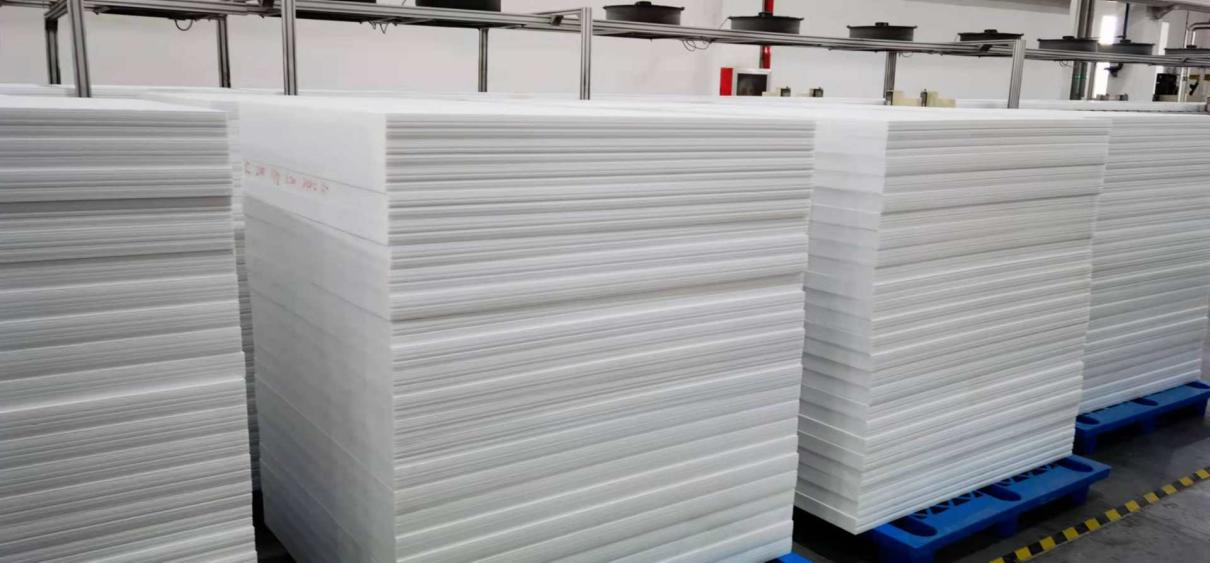What is PET Foam Core?


The main ingredient of PET foam core is polyethylene terephthalate, which is generally referred to as polyester resin.
PET foam is a closed-cell thermoplastic structural foam. PET foam core has a certain shear and compression strength. It is widely used as the core material of sandwich structure in the fields of construction, road transportation, rail transportation, aviation, wind power generation, etc.
The following are some of the main features of PET foam cores:
Easy to mold
Environmentally friendly
Auto-extinguishing
100% recyclable material.
Superior mechanical performance
Resistance to high temperatures and thermoforming
What is PVC Foam Core?
High expansion rigid polyvinyl chloride foam board is made of polyvinyl chloride resin and foamed with chemical blowing agent. PVC foam cores are primarily used for aviation, marine and transportation.
PVC foam cores have the following attributes:
Light weight
Closed cell
High strength
High bond strength
Fire retardant, etc.
Advantages of PET Foam Core

Now, let's look at some advantages of PET foam core:
1. Easy processing
PET foam materials have easy processing methods. The thermoforming process allows the formation of complex body structures, and its heat stability at high temperatures is outstanding. This is why it is easier to process by combining it with most types of resins and production methods.
2. Heat resistance
PET foam core is heat resistant. In simple terms, this means that it can withstand temperatures of around 150°C for a short period of time and around 100°C for a long period of time.
3. Eco-friendly
Conventional PET foams are produced using fluoride as a blowing agent, which will have a negative influence on the environment and human health. Yet, the newest PET foaming technology enables the use of carbon dioxide generated in the production process as a blowing agent, which is beneficial to environmental protection.
4. 100% recyclable
PET foam cores are 100% recyclable. Scrap and debris could be reused during the production process. Waste PET foam core material is also easily recycled.
Applications of PET Foam Core
Wind power industry
In the trend of new energy sources, PET foam has seen the greatest increase in applications in the wind power industry. The major purpose of the new PET foam production lines added in China is to meet this demand.
Transportation industry
From cars to trucks, from buses to trains and airplanes, using PET foam boards as composite cores allows a 50% reduction in weight, fuel consumption and CO2 emissions.
PET foam cores are primarily used in the manufacture of automotive floors, sidewalls, body structures, interiors, roofs, etc.
Construction industry
PET foam boards offer unsurpassed freedom in design and construction. Other benefits include low thermal conductivity, convenient installation, light weight, longer free span, feasibility of combining with various types of decorative surfaces, corrosion resistance, and lower maintenance and repair costs, making it the preferred choice of architects and engineers to replace traditional building materials.
The material is extensively used in roofing, cladding, dormers, mobile homes, support formwork, etc.
Why PET foam core is a better material than PVC foam core?
Although PVC foam core is also a common material employed in wind turbine blades, PET foam core has now started to replace the use of PVC foam core progressively.
There are two main reasons for this:
1. The waste of PVC is mainly disposed of through combustion and landfill, which results in some pollution to the soil and air.
2. PET is a material which is 100% recyclable.
1. The material of wind turbine blade is strictly required for density, water absorption rate, tensile strength, compressive strength, shear strength, bending strength, bending fatigue performance, etc. PET foam has greater advantages than PVC foam in these indexes.
2. PET is a material which is 100% recyclable.Particularly along with the rapid development of the wind power industry, the need for wind power blade core material has increased dramatically, and PET core material, as a more eco-friendly material.
In addition to this, PET foam cores have been popular in construction, industrial manufacturing, shipbuilding, aerospace and rail transportation. In these sectors, it can also be considered as a better material than traditional PVC foam cores.
How to produce PET Foam Core?


An extrusion foaming process based on supercritical fluid-assisted polymer processing technology was developed to produce PET sheet foam, coupled with the plasticizing effect of supercritical fluids to promote reactive extrusion of PET. Both virgin and recycled PET can be used as raw material with supercritical fluids being used as physical blowing agents.
To avoid strong hydrolysis of the molten PET, all materials are to be dried first with hot air with a dew point of at least -40°C for 4 hours to eliminate humidity below 50 ppm. Both PET and additives are added at a constant rate by means of a weight metering device.
Reactive extrusion of PET with multifunctional agents increases the molecular weight, broadens the molecular weight distribution, and introduces long chain branching, thereby improving the melt foaming properties and product performance of PET.
The foaming agent stably injected into the extruder is dissolved into the PET melt in the extrusion line, and subsequently the PET/SCF solution is cooled and extruded via the foaming die, in which cell nucleation and growth is activated by fast decompression. The extruded PET foam is subsequently calibrated, conveyed, trimmed and surface planed to yield the ultimate PET product.
The PET foam core production line designed and built by Feininger is effective in increasing productivity, reducing production costs and ensuring long-term stable performance.

 Español
Español Pусский
Pусский



